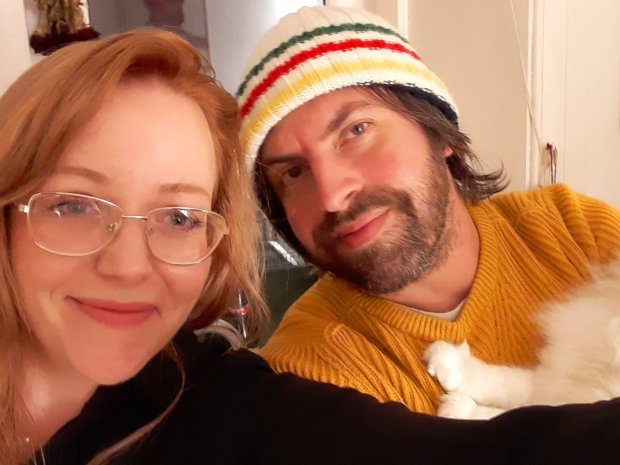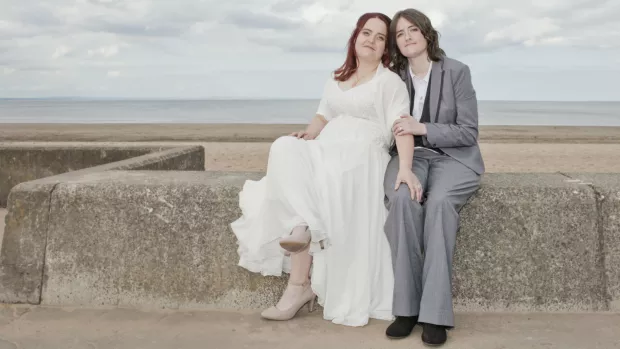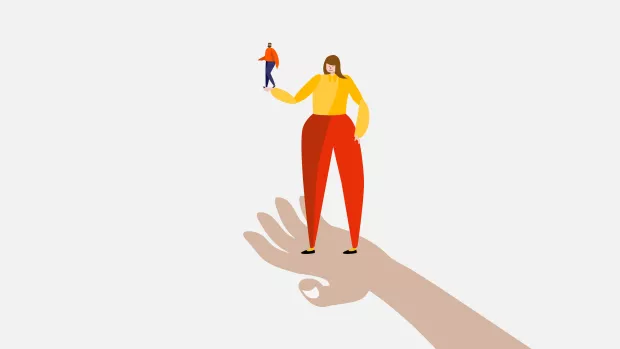
My partner, my husband... my carer?
This one’s going to be tough. I want to confront a topic that has slowly but steadily invaded my mind and now occupies dark corners of my self-image, my confidence, and my sense of, well, ‘me’. Does my partner consider himself to be my carer?
I want to throw a disclaimer in here, as usual. I know that to even entertain the idea that the answer to this question could be either ‘yes’ or ‘no’ or ‘sometimes’ means that I’m healthy enough to sometimes get away with appearing, well, ‘healthy’. Even under the heavily controlled circumstances we all know too well.
MS and my fears about the future
Being slapped with a big pile of MS is one of the quickest ways to question your own self-presumptuous trust in a future under your control. So I know the implications of my question. I know that one day this question might have to change to ‘Does my husband still love me the same way now that he is my carer?’ And to be honest with you, both questions terrify me.
Why? Well, for one, it’s not very sexy, the need to be cared for. It implies that the terms of your relationship have changed from one of mutual taking and giving to one of all-take, all-give. And then there’s the whole idea that these carers of ours may feel trapped in a situation that isn’t satisfying in the way it used to be.
A conversation with my husband about my MS
Just because the future is out of my control doesn’t mean that it’s going to be innately terrible. My worries, I must admit, come from my own negative perspective and my personal presumptions.
What about my husband? What does he have to say about all of this? Well, lucky for you, I asked him…
Me: So my first question is - after I told you I had MS, what were your initial thoughts?
Paul: Well, I didn’t have that much previous knowledge of MS, not in-depth, anyways. My first initial thought wasn’t that I felt put off but that I should probably learn more about it. I suppose when I think about this question what comes to mind is the things I didn’t think about. It certainly didn’t make me not want to be with you, and I didn’t see it as a problem. At the end of the day, I was dating you, not your illness. I never thought about mixing the two.
Me: And so after you learned a bit more about MS, did this change your perception at all?
Paul: The short answer is no. I guess, even though you hadn’t told me, the types of things that we had been doing together up to this point demonstrated that you were capable of being the person I wanted to be with. And that’s what really mattered to me.
Me: Did the fact I have MS scare you?
Paul: I don’t think ‘scared’ was how I felt. I had to think more in terms about the future. I had to consider if I saw a future with you, MS aside. Because I knew it wasn’t the type of situation, after you had told me, where we could keep things casual if we wanted to continue being together. And, well, YES I wanted to be with you, so that was kind of it.
Me: Did it make you any less attracted to me?
Paul: Absolutely not.
Me: So we’re 5 years into our relationship - is this what you thought daily life with MS would look like?
Paul: I suppose I didn’t have too many preconceived notions of what it would be like, but it’s not in any way more inconvenient than I thought it would be. Quite the opposite. I suppose the biggest thing to learn was the relationship between mental states and physical abilities, such as fatigue and anxiety, and how they can affect you physically. I feel like I’m continually learning what works best at the moment.
Me: Something that really gets me down is that, to me, I feel like on a good day you see about 60% of what I used to be.
Paul: Well, I never feel like I’m seeing some kind of reduced percentage of your potential. You’ve always just been 100% you to me.
Me: And do you worry about the care I might need in the future?
Paul: Not any more than I worry about any of the challenges we might face in the future. We’ve always been good at confronting things together and this won’t be any different. The thing is, I don’t need to have a bog standard normal life. That’s never really been something I’ve been concerned with.
Me: OK, last question. Do you think that the amount of care I might need in the future will affect our relationship?
Paul: Well, no. I mean, relationships are always uneven in that respect. I have a feeling you’ll be caring for me in unevenly distributed ways in the future, just as you do now, you know? That’s what love is.
Thinking about the future in a healthier way
Well, there you have it everyone. I feel like I’ve confronted something that really does scare me to my core and the outcome wasn’t anything like I expected.
I feel like I’ve begun to think about MS and the future in a healthier way. I’ve realised that sometimes our biggest challenges can be quelled with a simple conversation.
It’s easy to see our own burdens as other people’s burdens - but in the end, it’s important to remember that everything, even MS, is a matter of perspective.
Take part in our family and friends survey
Fill in our My MS My Needs survey for friends and family, and help us understand what support you need.


